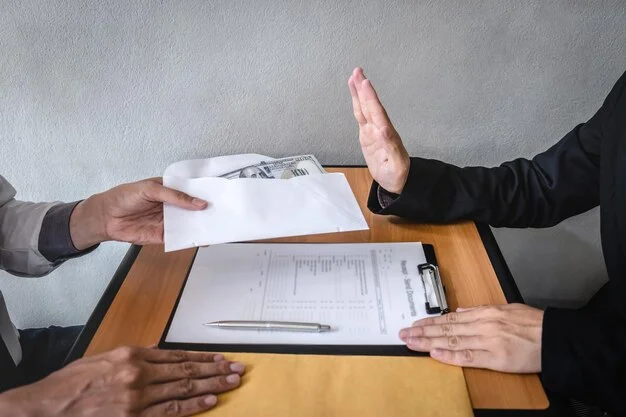There are serious and less serious events within the realm of law. Receiving a deposition subpoena falls under the former and demands your attention and action.
Whether you are directly involved in a legal case or have been called as a witness, your state’s law requires you to comply with all instructions. Therefore, you should not ignore a deposition subpoena, which can lead to legal and financial consequences.
What Is a Deposition Subpoena?
A subpoena is a document that requires you to testify in a legal case. Your testimony will happen under oath and must be relevant to said case. An attorney typically requests a subpoena, after which it is issued by either a justice of the peace, court clerk, or notary public.
You can receive a subpoena via email or certified mail. You can also get it served in person. When you receive a subpoena, you must respond in the appropriate manner. If you ignore it, you may be held in contempt of court.
There are three types of subpoenas:
- Witness subpoena. As the name states, this court order requires you to appear in court and provide witness testimony.
- Subpoena duces tecum. If you receive this type of subpoena, you are required to provide evidence during a court hearing. Supplying evidence usually happens during the discovery process of a legal case.
- Deposition subpoena. When you receive a deposition subpoena, you are a third party and must provide copies of the records. You may also have to appear at a deposition hearing, where you will have to answer specific questions.
Why Is a Deposition Subpoena Important?
A deposition refers to recording a witness’ testimony outside of the courtroom. All witnesses are sworn in and must answer questions under penalty of perjury. If you are a witness, your testimony will be transcribed by a court reporter. What you say may also be recorded (audio or video).
The deposition process allows lawyers to note what witnesses will say at trial. It also leaves tangible evidence in case the witness switches up their story during the trial.
A deposition subpoena is integral to this process because it ensures that third-party witnesses show up when they need to. Again, you can ignore a deposition subpoena at your peril. It will result in the court doling out punishment for noncompliance.
If the person is in an area that’s a different jurisdiction, you need to follow specific legal procedures that align with both states’ laws. In order to subpoena an out-of-state third party, attorneys often have to domesticate the subpoena through local courts where the witness resides. This step ensures the subpoena holds legal weight and can be enforced if necessary. Skipping this process can lead to delays or outright dismissal of the testimony.
The Consequences of Ignoring a Deposition Subpoena
Whether you are scared of testifying or have no interest in doing so, it does not mean you should ignore a subpoena. If you are held in contempt of court, you may pay a hefty fine, but you can also be imprisoned.
These ‘sentences’ are handed down by a court or the agency that issued the subpoena.
If you do not have the records or documents requested from you in a subpoena, you should contact a lawyer. An experienced lawyer will advise you on how to respond to the subpoena.
In most cases, a hearing will be held to determine the way forward. If you were incorrectly subpoenaed, it will be highlighted during this hearing.
Challenging a Subpoena
While you should not ignore a subpoena, you may be able to challenge it. For instance, you can serve a written objection to the subpoena, which your lawyer can help with.
You can also try to have the subpoena quashed, modified, or moved for a protective order.
If you serve a written objection, you must do so before the compliance date indicated in the subpoena, or you can have it served within 14 days of service. The written objective must be served on the lawyer or party named in the subpoena.
If you want to initiate a motion to quash the subpoena, you must file the motion before the compliance date. There are several reasons for which the court will grant a motion to quash the subpoena. These include:
- An unreasonable time limit for compliance with the instructions of the subpoena.
- If you must travel more than 100 miles to provide records or testimony
- If the subpoena demands protected material
- If the subpoena creates an undue burden on you
What to Do If You Receive a Deposition Subpoena
If you receive a subpoena, there are several steps to take before you decide on a course of action.
- Do not skim through the subpoena. It is crucial to read every bit of information in the document. This way, you will know exactly why it was served and for which lawsuit. It will also provide the deposition details, including time, date, and place.
Moreover, you will find the topics of the questions you are to answer listed in the subpoena.
- Check whether you are free on the deposition date. If you cannot attend, you must provide alternative dates and times.
- Ask a lawyer to help you prepare. You need to consult a lawyer to help you arrange a different date. If the other lawyer (who served the subpoena) does not want to accept a new date, your lawyer will file a motion with the court.
When you have the new date set, work with your lawyer to prepare for the deposition. Your lawyer will review the records and documents you need to testify about to ensure you know what to expect.
Attending the Deposition
Your lawyer will also attend the deposition with you. If you object to your questions, the lawyer can record these objections.
It is important to remember that a deposition is not an attack on you. It is also not something to take personally. All you need to do during a deposition is answer the questions posed to you. Do not volunteer to provide additional information other than what you are asked.
If you do not understand a specific question, ask that it be repeated. If you do not remember or do not know something, you are allowed to say so. Never make up information or make guesses if you do not know the answer.
A Deposition Subpoena Does Not Have to Be Intimidating
After receiving a subpoena, you can better manage the process if you understand your rights and responsibilities. Instead of ignoring the document, find a lawyer to help you respond to the subpoena appropriately. This will ensure that you are not held in contempt of court and can move through the legal process faster.







